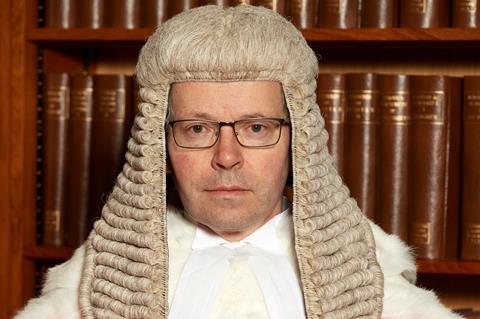A litigant in person who alleged a conspiracy between two leading firms and a string of lawyers has had his claims thrown out by the High Court.
In Haddad v Rostamani Mr Justice Fancourt said there was a ‘degree of inherent improbability’ in Dr Mohammed El Haddad’s ‘serious and unfounded’ claims that Allen & Overy, Clyde & Co, three senior solicitors, two leading counsel and three junior counsel had all dishonestly conspired to make him lose a partnership dispute in 2021. The judge said Haddad’s claim was a clear abuse of process by attempting to appeal the first ruling and should be struck out.
Haddad had been invited to choose his strongest five examples of fraud practised on the court and on him. The judge said these examples showed that Haddad’s case was ‘wholly artificial’ and based on statements made by lawyers with which the claimant disagreed.
‘Dr Haddad’s approach is that any assertion with which he disagrees is wrong, and the relevant lawyer defendant was therefore in breach of duty, which breach he said was sufficient evidence of knowledge of the falsity of the statement and therefore of fraud on the court,’ said the judge. ‘This is self-evidently an incoherent and deeply flawed approach.’

The court heard that Haddad had lost his original case when Mr Justice Zacaroli declined to hear his claim. To say that Haddad was aggrieved by this, Fancourt said, would be a ‘considerable understatement’. He applied to the judge to recuse himself from hearing his application for permission to appeal and then advanced 66 grounds of appeal.
Haddad applied to the Court of Appeal for permission to adduce a bundle of 1,350 pages instead of the permitted 350: permission was refused but he took no notice and filed an 81-page skeleton argument. This contained the new ground that solicitors acting for the defendants to the partnership claim and leading and junior counsel had dishonestly misled the court, and thus the judgment was obtained by fraud.
Haddad claimed that solicitors had created 14 dishonest strategies relating to expert evidence, with counsel adding to this conspiracy through alleged dishonest practice in the court.
The lawyer defendants sought to strike out the claim on five grounds including that the allegations were ‘hopeless’ and based on ‘incoherent, absurd’ understanding of how lawyers in England and Wales represent parties to litigation.
Fancourt agreed the claimant had misunderstood the basis on which lawyers act for clients, adding that representatives did not owe the court or another party to the case any duty to investigate the facts, or to ascertain the truth, before advancing the factual case on behalf of their client.
The judge concluded that the evidence presented of fraud was ‘hopelessly insufficient’ to establish a case, with all 66 allegations made during the hearing appearing to be constructed in the same flawed way.
‘The allegation of deliberately and dishonestly coordinating at least 66 fraudulent strategies to manipulate the proceedings and deceive the court is wholly improper. The bringing of a such a claim in the form of 204 pages of allegations is abusive and vexatious. There are no reasonable grounds established for bringing this claim against the lawyer defendants.’


























